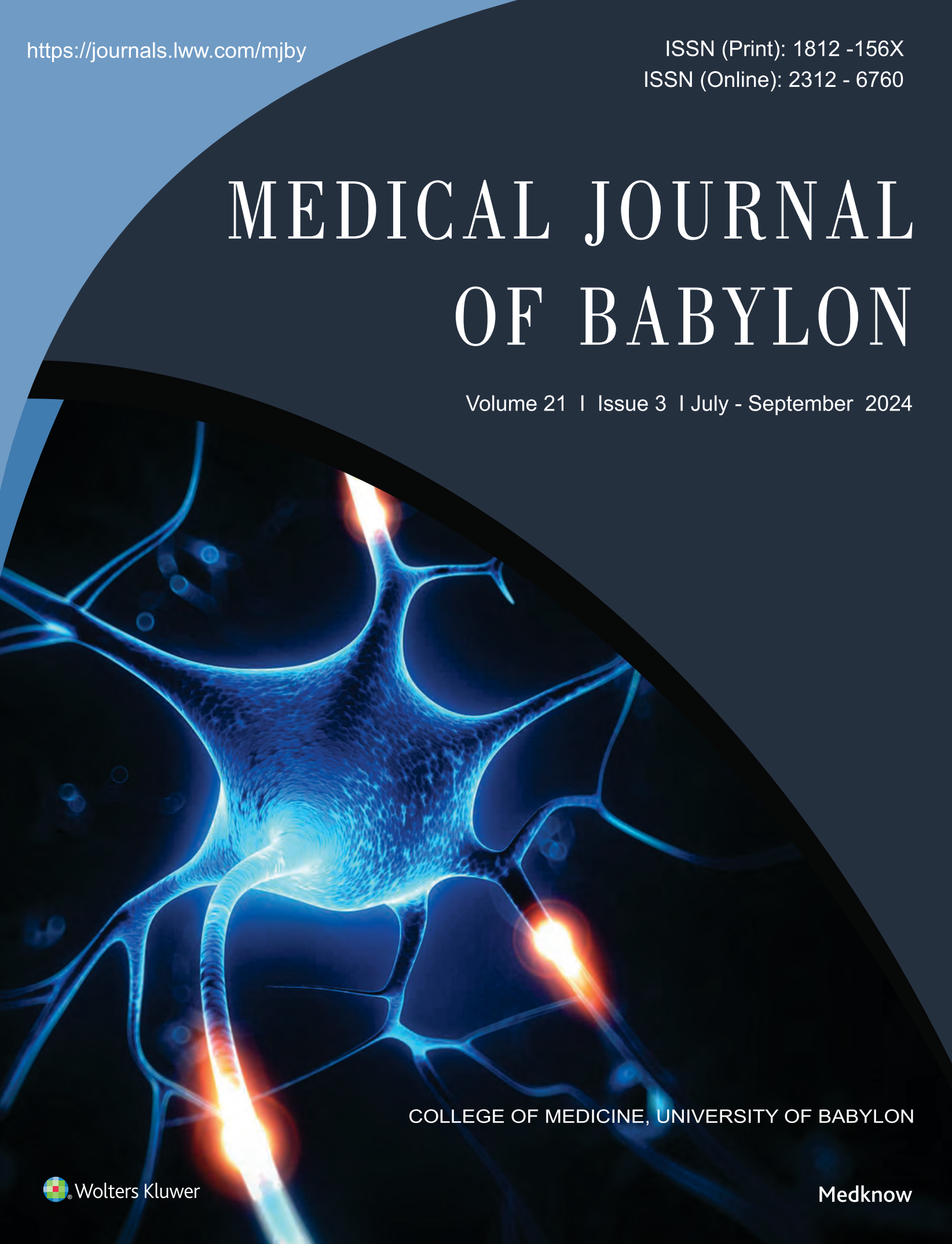Abstract
Background: Vitamin D deficiency is a common problem in patients with inflammatory bowel diseases (IBDs). Objectives: The aim of the
current study was to measure serum Vitamin D concentrations ( 25 (OH) D) in patients with IBD and examine its relation to the severity of
disease. Materials and Methods: This was a prospective cross‑sectional study of adult patients diagnosed with IBD including ulcerative
colitis and Crohn’s disease compared to sex‑matched controls from an outpatient clinic in a public hospital in Iraq between February 2018
and May 2018. The Vitamin D deficiency levels were assessed as below 20 ng/ml as deficient, between 20 and 30 ng/ml as insufficient,
and >30 ng/ml as sufficient level. Results: Serum Vitamin D levels were measured in 145 patients including 68 patients (median age:
30.5 ± 17.25) and 77 healthy controls (median age: 52.00 ± 12.25) ranged 18–63 years. Further, the median length of disease progression
was 3.0 years. Serum Vitamin D levels were significantly lower in patients (IBD or separately) compared to healthy controls. However,
such significant difference was not found between patients with respect to Vitamin D and disease severity. In addition, it was confirmed
that disease severity is related to Vitamin D deficiency in IBD patients. Conclusions: The current study revealed that the patients with
IBD have a significantly lower level of Vitamin D compared to healthy control group. In addition, the Vitamin D deficiency is related to
disease severity.
current study was to measure serum Vitamin D concentrations ( 25 (OH) D) in patients with IBD and examine its relation to the severity of
disease. Materials and Methods: This was a prospective cross‑sectional study of adult patients diagnosed with IBD including ulcerative
colitis and Crohn’s disease compared to sex‑matched controls from an outpatient clinic in a public hospital in Iraq between February 2018
and May 2018. The Vitamin D deficiency levels were assessed as below 20 ng/ml as deficient, between 20 and 30 ng/ml as insufficient,
and >30 ng/ml as sufficient level. Results: Serum Vitamin D levels were measured in 145 patients including 68 patients (median age:
30.5 ± 17.25) and 77 healthy controls (median age: 52.00 ± 12.25) ranged 18–63 years. Further, the median length of disease progression
was 3.0 years. Serum Vitamin D levels were significantly lower in patients (IBD or separately) compared to healthy controls. However,
such significant difference was not found between patients with respect to Vitamin D and disease severity. In addition, it was confirmed
that disease severity is related to Vitamin D deficiency in IBD patients. Conclusions: The current study revealed that the patients with
IBD have a significantly lower level of Vitamin D compared to healthy control group. In addition, the Vitamin D deficiency is related to
disease severity.
